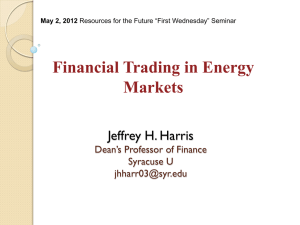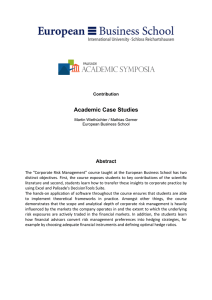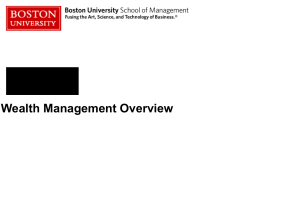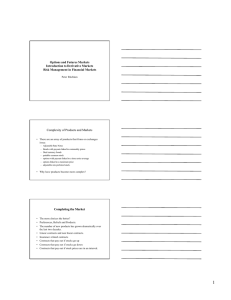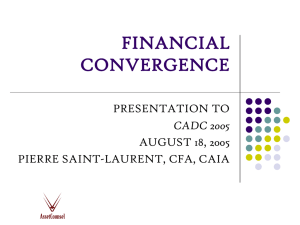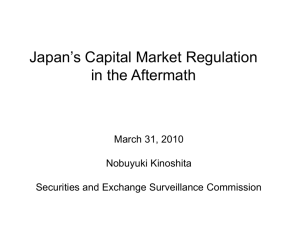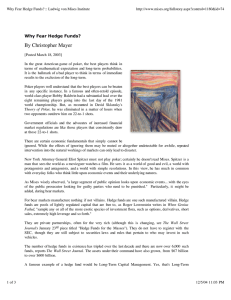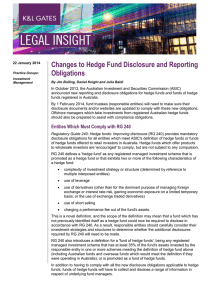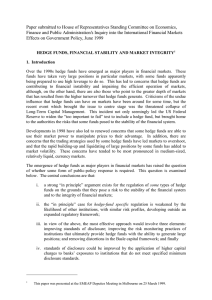Discussion 1. General Discussion
advertisement
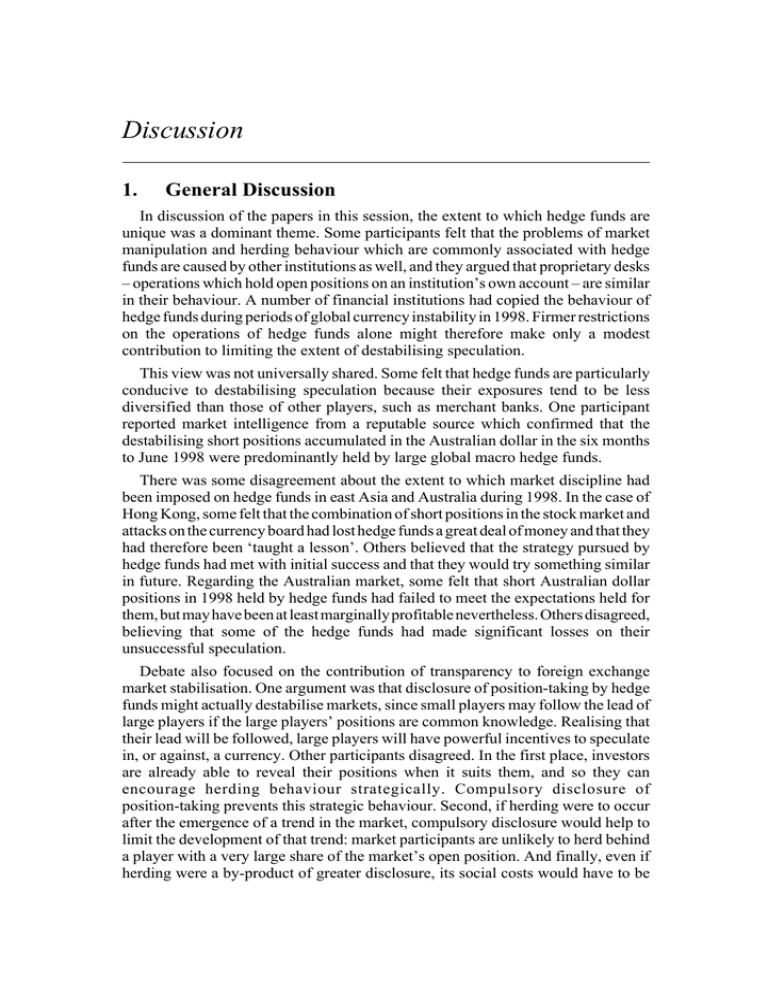
Discussion 179 Discussion 1. General Discussion In discussion of the papers in this session, the extent to which hedge funds are unique was a dominant theme. Some participants felt that the problems of market manipulation and herding behaviour which are commonly associated with hedge funds are caused by other institutions as well, and they argued that proprietary desks – operations which hold open positions on an institution’s own account – are similar in their behaviour. A number of financial institutions had copied the behaviour of hedge funds during periods of global currency instability in 1998. Firmer restrictions on the operations of hedge funds alone might therefore make only a modest contribution to limiting the extent of destabilising speculation. This view was not universally shared. Some felt that hedge funds are particularly conducive to destabilising speculation because their exposures tend to be less diversified than those of other players, such as merchant banks. One participant reported market intelligence from a reputable source which confirmed that the destabilising short positions accumulated in the Australian dollar in the six months to June 1998 were predominantly held by large global macro hedge funds. There was some disagreement about the extent to which market discipline had been imposed on hedge funds in east Asia and Australia during 1998. In the case of Hong Kong, some felt that the combination of short positions in the stock market and attacks on the currency board had lost hedge funds a great deal of money and that they had therefore been ‘taught a lesson’. Others believed that the strategy pursued by hedge funds had met with initial success and that they would try something similar in future. Regarding the Australian market, some felt that short Australian dollar positions in 1998 held by hedge funds had failed to meet the expectations held for them, but may have been at least marginally profitable nevertheless. Others disagreed, believing that some of the hedge funds had made significant losses on their unsuccessful speculation. Debate also focused on the contribution of transparency to foreign exchange market stabilisation. One argument was that disclosure of position-taking by hedge funds might actually destabilise markets, since small players may follow the lead of large players if the large players’ positions are common knowledge. Realising that their lead will be followed, large players will have powerful incentives to speculate in, or against, a currency. Other participants disagreed. In the first place, investors are already able to reveal their positions when it suits them, and so they can encourage herding behaviour strategically. Compulsory disclosure of position-taking prevents this strategic behaviour. Second, if herding were to occur after the emergence of a trend in the market, compulsory disclosure would help to limit the development of that trend: market participants are unlikely to herd behind a player with a very large share of the market’s open position. And finally, even if herding were a by-product of greater disclosure, its social costs would have to be 180 Discussion balanced against the benefits which arise when banks have to take greater account of their exposure to highly leveraged institutions. Macroeconomic policy experiences were also discussed. One participant interpreted Hong Kong’s experience to mean that countries which ran very predictable monetary policies raised their vulnerability to speculative attacks. When speculators took short positions in the stockmarket in 1998, they were relying on the Hong Kong Monetary Authority’s defence of the currency board to produce a sharp rise in interest rates and a consequent fall in stock prices. Only by doing something very unexpected had the Hong Kong Monetary Authority been able to inflict heavy losses on these speculators.
